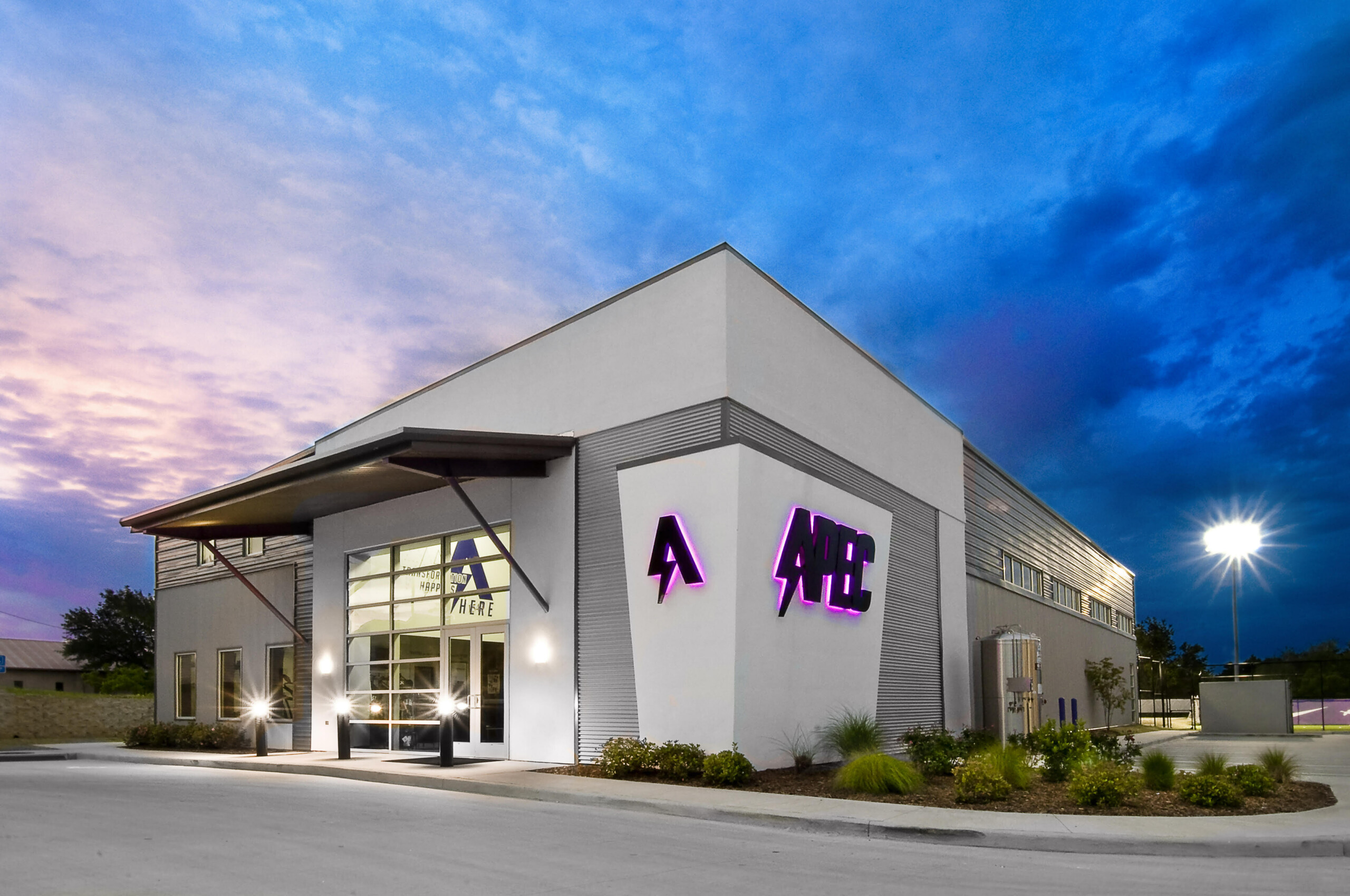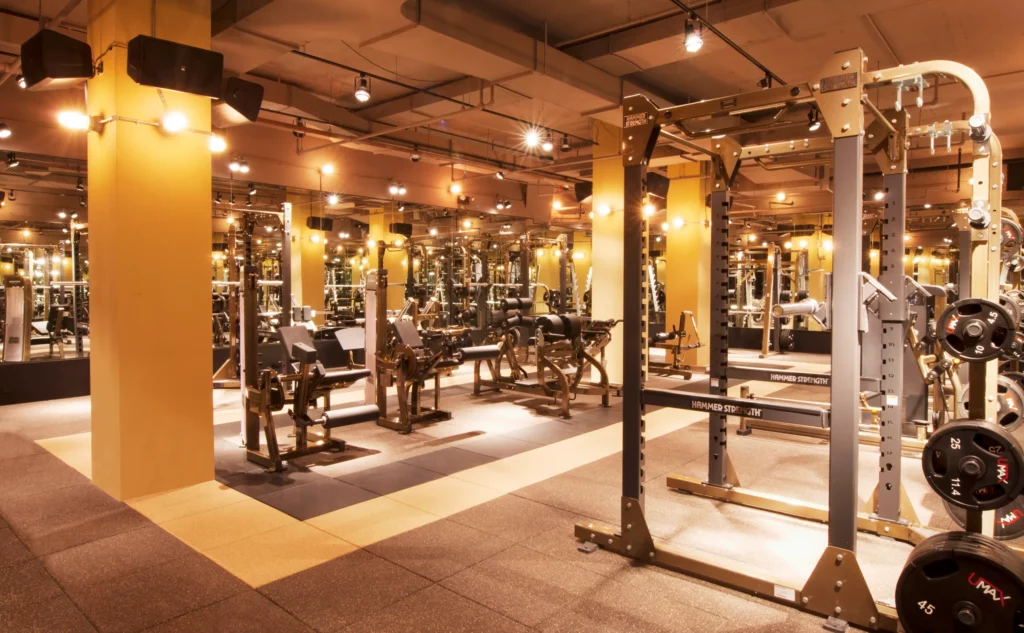What equipment is needed to start a boutique gym?
To start a boutique gym, you need specialized equipment tailored to your niche, whether it’s HIIT, cycling, yoga, or strength training.

Common boutique gym equipment includes high-quality dumbbells, kettlebells, resistance bands, squat racks, treadmills, rowing machines, and exercise bikes. For boutique fitness studios focused on group classes, TRX suspension trainers, battle ropes, plyometric boxes, and agility ladders are essential. Yoga and Pilates studios require mats, reformers, and resistance rings. Additionally, investing in a boutique fitness gym management software like Exercise.com helps streamline class scheduling, member tracking, and payment processing to ensure seamless operations.
In this article, we will explore in detail the equipment needed to start a boutique gym and how it can contribute to the overall experience for your clients. Opening a boutique fitness studio requires careful planning, including selecting the right boutique equipment to match your gym’s training style and member experience. The boutique gym definition refers to a specialized fitness facility that offers unique, tailored workouts such as group fitness classes, personal training, or specialized training programs. The boutique fitness studio design plays a significant role in determining what studio gym equipment is needed. For example, a personal training boutique will require different personal training studio equipment than a group-based boutique fitness center offering yoga, Pilates, or HIIT classes.
| Boutique Gym Type | Key Equipment | Estimated Cost |
|---|---|---|
| Personal Training Boutique | Dumbbells, kettlebells, resistance bands, benches | $5,000 – $15,000 |
| HIIT Studio | Battle ropes, slam balls, plyometric boxes, rowers | $10,000 – $25,000 |
| Pilates Studio | Reformers, mats, stability balls, resistance bands | $8,000 – $20,000 |
| Yoga Studio | Mats, blocks, straps, bolsters, infrared heaters | $3,000 – $12,000 |
| Boxing/MMA Studio | Punching bags, gloves, speed bags, boxing rings | $7,000 – $18,000 |
| Luxury Boutique Gym | High-end cardio machines, recovery equipment, saunas | $30,000+ |
| Functional Training Gym | Suspension trainers, sleds, turf, resistance bands | $10,000 – $20,000 |
The equipment needed to start a boutique fitness studio varies based on the type of boutique gym. A professional gym boutique focused on weightlifting and strength training will need free weights, power racks, and resistance machines. In contrast, a size fitness boutique specializing in group workouts will prioritize cardio machines, resistance bands, and open space for movement. The boutique fitness studio tools and equipment used to run a gym also depend on whether the studio offers specialized classes, one-on-one training, or hybrid digital and in-person workouts. The cost of gym equipment needed to start a gym can range from a few thousand dollars for basic setups to tens of thousands for high-end boutique gym design and premium gear.

When selecting what equipment you need to start a gym, consider factors such as space, member capacity, and workout style. Some boutique gyms focus on low-equipment, high-intensity workouts, while others require specialized machines. For example, a boutique fitness studio design incorporating group classes will need open floor space and storage for boutique equipment list essentials like mats, weights, and resistance bands. The cost of how to start a boutique fitness studio also depends on whether you lease or buy studio gym equipment, the brand and quality of the equipment, and any technology integrations such as smart workout tracking.
By using Exercise.com’s software, boutique gym owners can optimize operations, manage equipment investments, and streamline class scheduling. Whether you’re launching a boutique fitness studio or a personal training boutique, Exercise.com provides the tools to track usage, book training sessions, and ensure a smooth member experience while keeping costs under control. If you’re ready to bring your boutique gym ideas to life, having the right boutique fitness studio tools and management software is the key to long-term success.
Discover the essential equipment needed to kickstart your boutique gym and create a unique fitness experience. Then see how the best business management software for gyms and the best boutique fitness studio software can help you grow and scale your gym.

Why start a boutique gym?
Starting a boutique gym can be an exciting venture for fitness enthusiasts and entrepreneurs alike. With the increasing demand for specialized fitness experiences, boutique fitness gyms have gained popularity in recent years. These gyms offer a unique and tailored approach to fitness, focusing on specific training methods, targeted workout programs, and a personalized atmosphere. However, to ensure the success of your boutique gym, it is essential to have the right equipment in place.

Before diving into the equipment requirements, it is crucial to understand the motivation behind starting a boutique gym. Unlike traditional gyms, boutique gyms offer a more intimate and specialized fitness experience. They provide a welcoming and community-oriented environment where clients can engage with like-minded individuals and receive personalized attention from knowledgeable trainers. By focusing on specific training methods or workout programs, boutique gyms can cater to the unique needs and preferences of their clients, creating a sense of exclusivity and customization. These factors have contributed to the rise of boutique gyms in the fitness industry, making them an appealing option for both gym-goers and fitness entrepreneurs alike.
Understanding the concept of a boutique gym
Before delving into the equipment requirements, it is necessary to have a clear understanding of what sets a boutique gym apart from traditional gyms. Unlike large-scale fitness centers that offer a range of equipment and classes, boutique gyms focus on a specific niche. This niche can be anything from spinning and cycling studios to boxing gyms, yoga retreats, or high-intensity interval training (HIIT) facilities. By honing in on a specific training method, boutique gyms can create a specialized and immersive workout environment that aligns with their target market. Understanding this concept is crucial when selecting the right equipment for your boutique gym as it will directly impact the overall experience and effectiveness of your training programs.
Benefits of opening a boutique gym
There are several benefits to opening a boutique gym. Firstly, boutique gyms have a unique selling point as they cater to specific training methods, attracting clients who are passionate about these specialized workouts. This targeted approach allows boutique gyms to build a loyal client base that appreciates the specific training programs on offer. Additionally, the smaller size of boutique gyms creates a sense of community and camaraderie among clients, fostering a supportive and motivating atmosphere. Furthermore, the personalized attention provided by knowledgeable trainers in boutique gyms ensures that clients receive proper guidance and support throughout their fitness journey. These benefits make boutique gyms an attractive option for those looking for a more tailored and individualized fitness experience.
Analyzing the target market for a boutique gym
When starting a boutique gym, it is crucial to understand and analyze the gym target market. Identifying your ideal clientele will help shape your equipment selection and overall gym design. For example, if your boutique gym focuses on cycling or spinning classes, you will need stationary bikes that are designed to withstand intensive cardio sessions. On the other hand, if your target market prefers strength training, you will need to invest in quality resistance machines, free weights, and other related equipment. Understanding the needs and preferences of your target market will not only guide your equipment choices but also help you create targeted and effective training programs that cater to their specific fitness goals.
Read More:
- How to Start a Gym
- How much money do you need to open a gym?
- How to Write a Gym Business Plan
- How to Create a Gym Budget
Essential equipment for a successful boutique gym
When it comes to the equipment needed for a boutique gym, there are several essentials that should be considered. These include cardio equipment, strength training equipment, functional training equipment, flooring and mats, sound systems, incorporating technology, space-saving options, budget-friendly alternatives, sourcing and purchasing tips, maintenance and upkeep, safety and hygiene standards, future expansion and scalability, and customizing equipment selection to fit the branding and atmosphere of your gym. We will explore each of these topics in detail to provide you with comprehensive insights into the equipment requirements for your boutique gym.
Cardio equipment for a boutique gym
Cardiovascular exercise plays a crucial role in any fitness routine, and as such, cardio equipment is essential in a boutique gym. Depending on your target market and training focus, there are several options to consider. Treadmills, stationary bikes, rowing machines, and ellipticals are popular choices for boutique gyms. These machines provide a low-impact and effective way for clients to improve their cardiovascular fitness. It is crucial to invest in top-quality cardio equipment that is durable, easy to use, and comfortable for extended workouts. Additionally, integrating technology features such as heart rate monitoring, interactive programming, and virtual training options can enhance the overall cardio experience for your clients.
Strength training equipment for a boutique gym
Strength training is another fundamental aspect of many fitness programs, and having the right equipment is essential. Depending on the size and focus of your boutique gym, you may need to invest in a variety of strength training equipment. This can include free weights such as dumbbells, barbells, and kettlebells, as well as resistance machines, weight benches, and cable machines. Providing a range of options allows clients to target different muscle groups and personalize their workouts based on their individual goals. It is important to select equipment that is durable, adjustable, and suits the space constraints of your boutique gym.
Functional training equipment for a boutique gym
Functional training equipment focuses on exercises that mimic real-life movements, promoting coordination, balance, and overall body strength. This type of equipment is particularly well-suited to boutique gyms as it offers versatility and engages multiple muscle groups simultaneously. Some examples of functional training equipment include stability balls, medicine balls, resistance bands, battle ropes, and suspension trainers. Incorporating these tools into your boutique gym will provide clients with a unique and challenging workout experience that goes beyond traditional strength training.
Choosing the right flooring and mats for a boutique gym
The flooring and mats in your boutique gym may seem like a minor detail, but they can have a significant impact on both safety and workout experience. Selecting flooring that is slip-resistant, shock-absorbent, and easy to clean is crucial to ensure the safety and well-being of your clients. Additionally, investing in high-quality mats for weightlifting areas, stretching zones, and group exercise spaces helps protect both clients and equipment from damage. Consider the specific needs of your training programs when choosing the appropriate flooring and mats to create a safe and comfortable environment for your boutique gym.
The importance of quality sound systems in a boutique gym
A common feature of boutique gyms is the incorporation of energetic music into fitness classes and workout sessions. A high-quality sound system is therefore essential to create a motivating atmosphere and enhance the overall experience for your clients. Invest in speakers and audio equipment that provide clear sound, even in a high-energy workout environment. This will allow your trainers to communicate effectively and keep clients engaged throughout their workouts. Implementing a sound system that can be easily controlled and adjusted from different areas of the gym will ensure that the music fits the tone and pace of each training session.
Incorporating technology in your boutique gym equipment selection
In today’s digital age, incorporating technology into your boutique gym equipment selection is crucial to stay competitive. From interactive screens on cardio equipment to wearable fitness trackers and workout apps, technology can enhance the overall client experience and provide valuable tracking and feedback data. Consider investing in equipment that offers integration with fitness apps or provides real-time performance metrics. This will not only keep your clients engaged but also allow you to monitor progress and tailor training programs to individual needs.
Space-saving equipment options for small boutique gyms
Space is often a constraint in boutique gyms, particularly those located in urban areas where real estate costs are high. To maximize your available space, consider investing in space-saving equipment options. This can include adjustable dumbbells, multi-functional machines, foldable cardio equipment, and wall-mounted storage solutions. By selecting equipment that is compact and efficient, you can optimize the layout of your boutique gym and accommodate a greater variety of training options within a limited space.
Budget-friendly equipment alternatives for startup boutique gyms
Starting a boutique gym can be a significant investment, but there are budget-friendly alternatives available without compromising on quality. Consider purchasing used equipment from reputable fitness suppliers or leasing certain pieces of equipment to reduce upfront costs. Additionally, prioritize essential equipment based on the specific training focus of your boutique gym. By carefully planning your equipment budget and exploring cost-effective options, you can start your boutique gym without breaking the bank.
Tips on sourcing and purchasing equipment for your boutique gym
Sourcing and purchasing equipment for your boutique gym can be a complex process. To make the most informed decisions, take the time to research and compare different suppliers, considering factors such as price, warranty, customer reviews, and equipment durability. Consult with fitness professionals or industry experts to ensure that in your boutique gym marketing plan you select the most suitable equipment for your target market and training programs. Furthermore, when purchasing, consider the long-term maintenance and logistical aspects, as well as the potential for future equipment upgrades or expansion. By conducting thorough research and seeking professional advice, you can make smart purchasing decisions that align with your boutique gym’s goals and budget.
Maintenance and upkeep of equipment in a boutique gym
Proper maintenance and upkeep of equipment are essential for the longevity and safety of your boutique gym. Establishing a regular maintenance schedule, performing routine inspections, and ensuring equipment is regularly cleaned and sanitized are crucial steps to take. Additionally, conducting regular staff training on equipment maintenance procedures and safety protocols will help minimize the risk of accidents or equipment failures. It is also important to keep accurate records of equipment usage, repairs, and replacements to ensure a smooth and efficient operation of your boutique gym.
Ensuring safety and hygiene standards in your boutique gym through proper equipment selection
The safety and well-being of your clients should be a top priority in your boutique gym. Proper equipment selection and adherence to safety standards are essential to minimize the risk of injuries. Ensure that all equipment meets quality and safety standards, regularly inspect for any signs of damage or wear, and provide clear instructions on correct usage. Furthermore, maintaining a clean and hygienic environment through proper sanitation practices and regular equipment cleaning is crucial to prevent the spread of germs or infections in your boutique gym.
Considering future expansion and scalability when choosing equipment for your boutique gym
When selecting equipment for your boutique gym, it is vital to consider future expansion and scalability. As your client base grows, you may need to increase the capacity of your gym and introduce additional equipment. Therefore, choose equipment that can be easily integrated or expanded upon in the future. This will save you both time and money when it comes to expanding your boutique gym operations and accommodating the evolving needs of your clients.
Customizing your equipment selection to fit the unique branding and atmosphere of your boutique gym
One of the defining characteristics of a successful boutique gym is its unique branding and atmosphere. To create a distinct and memorable experience for your clients, consider customizing your equipment selection to align with your boutique gym’s overall theme and ambiance. This can include choosing equipment in specific colors or finishes, incorporating branding elements, or selecting equipment with unique features that enhance the overall aesthetic appeal of your gym. By investing in equipment that aligns with your boutique gym’s branding and atmosphere, you can create a cohesive and immersive experience for your clients.
The role of staff training and education in maximizing the use of equipment in a boutique gym
Lastly, it is essential to invest in staff training and education to maximize the use of the equipment in your boutique gym. Provide your trainers and staff with comprehensive training on the correct usage, maintenance, and programming of the equipment. This will enable them to assist clients effectively and ensure the equipment is utilized to its full potential. Ongoing professional development and education opportunities will also keep your staff up-to-date with the latest industry trends and ensure they have the knowledge and skills to deliver exceptional service to your clients.
Starting a boutique gym requires careful consideration of the equipment needed to provide a specialized and immersive fitness experience. Selecting the right equipment, tailored to the needs of your target market and training programs, is crucial for the success of your boutique gym. From cardio and strength training equipment to functional training tools, flooring, sound systems, and technology integration, every aspect of your equipment selection contributes to the overall client experience. By investing in high-quality equipment, prioritizing safety and maintenance, and customizing your selection to fit your boutique gym’s branding and atmosphere, you can create a unique and successful fitness facility that stands out in the competitive fitness industry.
Read More: How to Start a Fitness Business

Read More:










